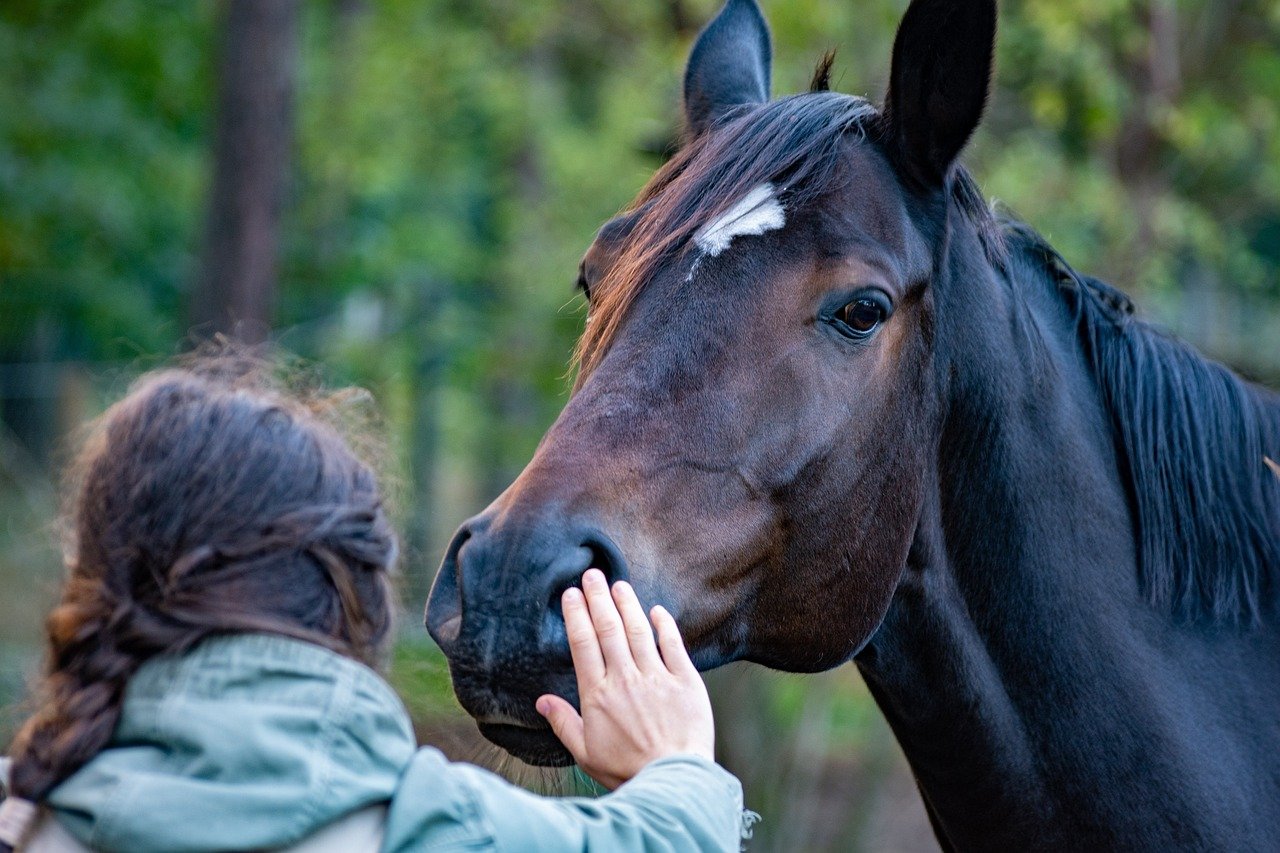Equine Therapy for Incarcerated Veterans: Addressing a National Crisis
Equine therapy for incarcerated veterans is gaining attention in the United States as a powerful tool for healing trauma and reducing reoffending. Military service members often return from duty carrying invisible wounds, and for many, the transition from the battlefield to civilian life is anything but smooth. A staggering number of these veterans find themselves entangled in the criminal justice system. Nearly one-third of US war veterans have been arrested or jailed at some point—a statistic that highlights a silent but urgent crisis.
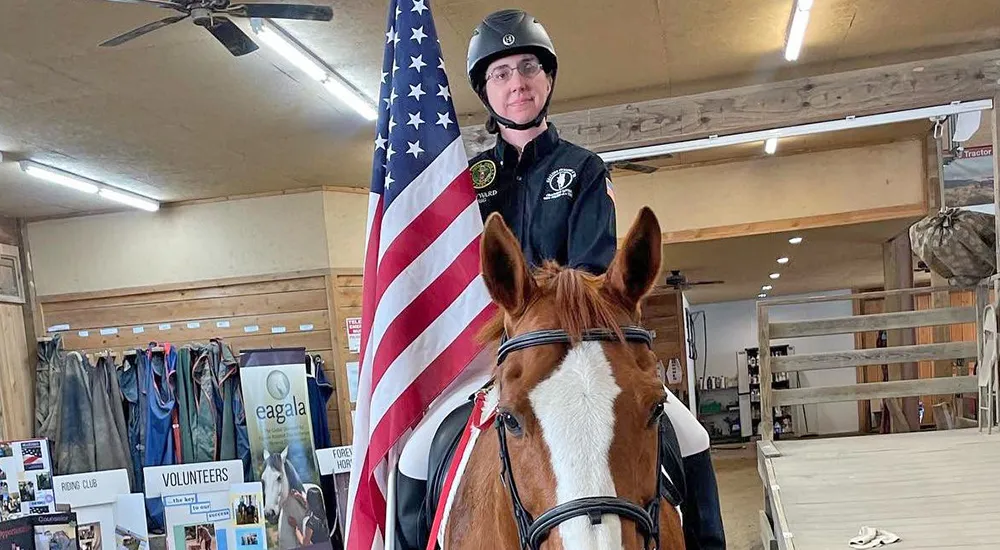
In Texas, a unique program is offering a path to recovery. At the Collin County Jail, a small group of men and women are engaging with horses, not just to learn riding or handling techniques, but to confront deep-seated trauma and begin a journey toward emotional healing and reintegration into society.
Why Equine Therapy for Incarcerated Veterans Is Essential for Healing
The numbers are troubling. Veterans make up about 8% of the incarcerated population in the US, equating to over 100,000 individuals. These figures aren’t solely due to combat-related behavior. Many veterans face untreated mental health issues like Post-Traumatic Stress Disorder (PTSD), depression, anxiety, and substance abuse—conditions that can lead to legal trouble and incarceration.
Veterans often lose the structure, camaraderie, and identity they once had in the military. Without adequate support, they may turn to drugs, alcohol, or violence, resulting in arrests and jail time. This loss of community, often referred to as “leaving the tribe,” creates a profound sense of dislocation.
Equine Therapy for Incarcerated Veterans: How the Valor Programme Is Changing Lives
To address these issues, the Veterans Accessing Lifelong Opportunities for Rehabilitation (Valor) program was launched in 2018. Based in Texas, Valor serves as a beacon of hope for incarcerated veterans, offering services such as mental health therapy, peer support, anger management classes, and most notably, horse-assisted therapy.
The Valor initiative currently works with about 40 veterans, aiming to reduce recidivism and improve overall mental well-being. The program’s crown jewel is its partnership with a seasoned horse trainer who brings years of military and cowboying experience to the table.
Meet the Mentor Behind Equine Therapy for Incarcerated Veterans: Pat Puckett and Natural Horsemanship
At the heart of the horse therapy initiative is Pat Puckett, a 75-year-old Vietnam veteran who has spent much of his life as a horse trainer across the American West. Puckett doesn’t just teach horse handling—he teaches mindfulness, empathy, and resilience. His method, rooted in natural horsemanship, emphasizes communication, trust, and cooperation rather than domination.
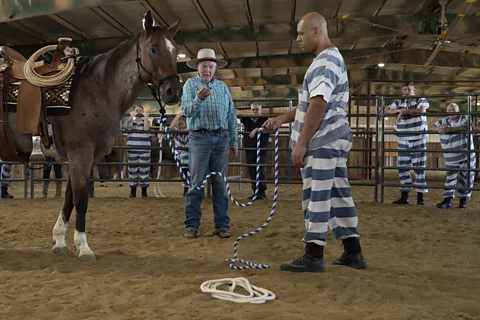
“Horses are sensitive. People are not,” Puckett often tells his students. “We’ll never be as sensitive as a horse—but we can try.”
His training sessions, which begin in a round pen under the hot Texas sun, serve as metaphors for life: if a horse won’t accept a bit, it might mean the handler is too tense or too aggressive. The process of bonding with an animal that senses fear, aggression, or calmness on a subconscious level pushes participants to regulate their emotions and behavior.
Equine Therapy for Incarcerated Veterans: What It Involves and Why It Works
Equine therapy for incarcerated veterans involves structured sessions where inmates interact with horses in a safe, controlled environment. Unlike traditional psychotherapy, these sessions are experiential, meaning that learning happens through doing—grooming a horse, leading it, observing its body language, and gradually earning its trust.
Benefits of Equine Therapy
Several studies have shown that equine therapy has numerous benefits, including:
- Reduced anxiety and stress
- Improved emotional regulation
- Increased self-esteem
- Enhanced empathy and compassion
- Development of patience and mindfulness
Horses, unlike humans, offer non-verbal feedback. They respond to tone, energy, and movement, making them ideal partners for individuals working through trauma. For veterans grappling with PTSD, this relationship can offer a profound breakthrough.
A Veteran’s Voice: Jeffrey Philips’ Journey with Valor
Among the current Valor participants is Jeffrey Philips, a former Navy serviceman who faced traumatic experiences both during and after his service. Although he never saw direct combat, Philips witnessed tragedy during training and endured the suicides of close friends after leaving the military.
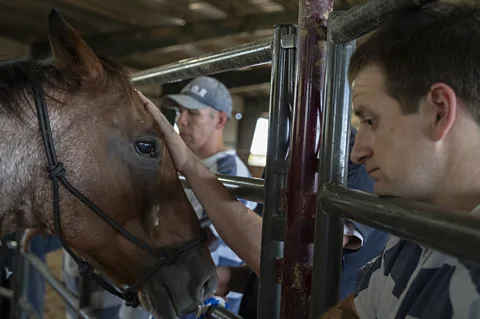
These events triggered severe PTSD, leading to self-medication through alcohol. Arrested multiple times for driving under the influence, Philips eventually found himself in jail—where he was introduced to the Valor program. He describes equine therapy as a turning point in his recovery: “You don’t have to be on a battlefield to suffer trauma. This program helped me face mine.”
Building Trust, One Horse at a Time
One powerful moment during the sessions involves a therapeutic exercise where the participant stands before a horse, placing a hand gently between its eyes. The goal is to establish enough trust for the horse to lower its head—a signal of submission and safety.
For Ashley Davis, a Navy veteran and former emergency nurse, this exercise was transformative. “Working with the horses has helped me understand when I’m starting to spiral. I’ve learned to breathe, to center myself, to calm the storm inside,” she shares. “This gives me tools I can carry into the outside world.”
Breaking the Cycle of Incarceration
Programs like Valor don’t just serve emotional needs; they have the potential to break the cycle of incarceration. When veterans learn emotional regulation, empathy, and coping skills, they are less likely to reoffend. This, in turn, reduces the burden on the criminal justice system and creates a ripple effect throughout communities.
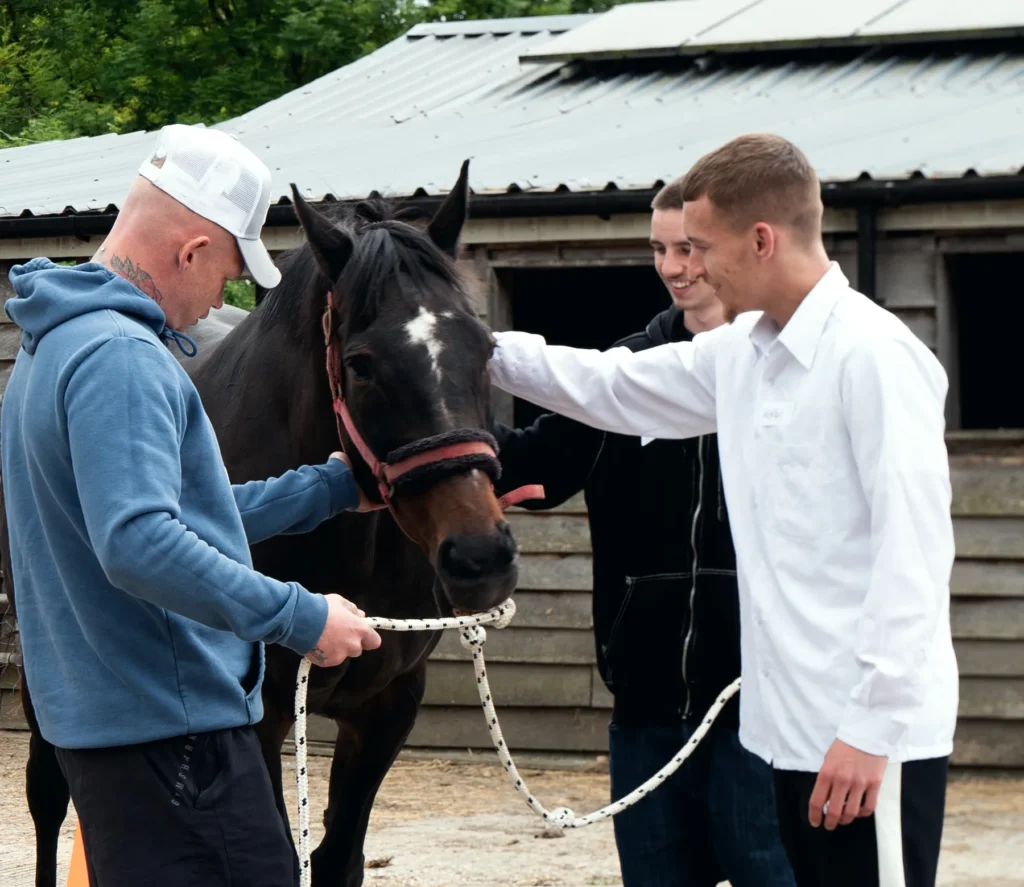
According to international research, animal-assisted therapy, especially with horses, helps reduce recidivism by building empathy and social skills, often lacking in individuals with trauma.
Community Impact and Expansion Plans
Valor is currently expanding. Collin County Jail is building permanent stables and facilities for horse therapy, ensuring the program can serve more veterans year-round. This expansion speaks to the growing belief in non-traditional, trauma-informed rehabilitation.
Sheriff Jim Skinner, a military veteran himself, sees firsthand how the program changes lives. “When someone comes to us, they’re broken. They’ve made mistakes. But the potential for healing is there,” he explains. “With the horses, they find a way back to themselves.”
The Science Behind Horse-Human Connection
Why are horses so effective in therapy? Part of the answer lies in neuroscience. Humans and horses share a limbic connection—the part of the brain responsible for emotions. Horses are prey animals, making them hyper-vigilant to subtle cues in their environment, including changes in human body language, heart rate, and breathing.
This biological attunement enables them to reflect back the emotional state of the handler. A dysregulated veteran must calm themselves internally before the horse will respond cooperatively, reinforcing self-awareness and emotional control.
From Jail Cells to Trail Rides: The Graduation Ceremony
After weeks of training and therapy, participants graduate from the Valor program with a symbolic trail ride. This final ride signifies not only progress with the horses but internal growth. It’s a chance for each veteran to reclaim a sense of pride and achievement.
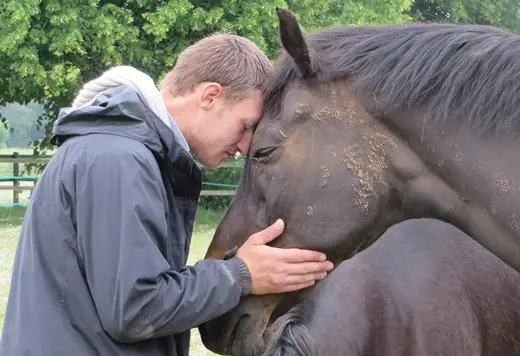
For many, it’s their first sense of accomplishment in years.
Beyond Bars: What Comes Next?
Programs like Valor don’t stop at therapy. Graduates often receive post-release support, including:
- Mental health counseling
- Peer support networks
- Employment assistance
- Community reintegration programs
These wraparound services ensure the gains made during incarceration translate into lasting change outside of prison walls.
A Model for National Reform
While equine therapy for veterans is not new, Valor is among the few programs focusing exclusively on incarcerated military veterans. Given its success, it could serve as a national model for criminal justice reform. By blending therapeutic intervention with peer bonding and skill-building, it represents a holistic approach to rehabilitation.
Other states and counties are now watching the program closely, exploring ways to implement similar initiatives in their correctional systems.
Final Thoughts: Reins of Redemption
Healing doesn’t happen overnight. For many veterans in jail, years of trauma, poor decisions, and lost direction have left lasting scars. But the Valor program is proving that with patience, guidance, and the quiet power of horses, those scars can begin to heal.
Equine therapy for incarcerated veterans is more than just a novel idea—it’s a lifeline. It brings dignity, trust, and transformation to those society often overlooks. In the stillness between man and horse, redemption is found—not in words, but in the lowering of a head, the slowing of a breath, and the quiet return of hope.
